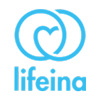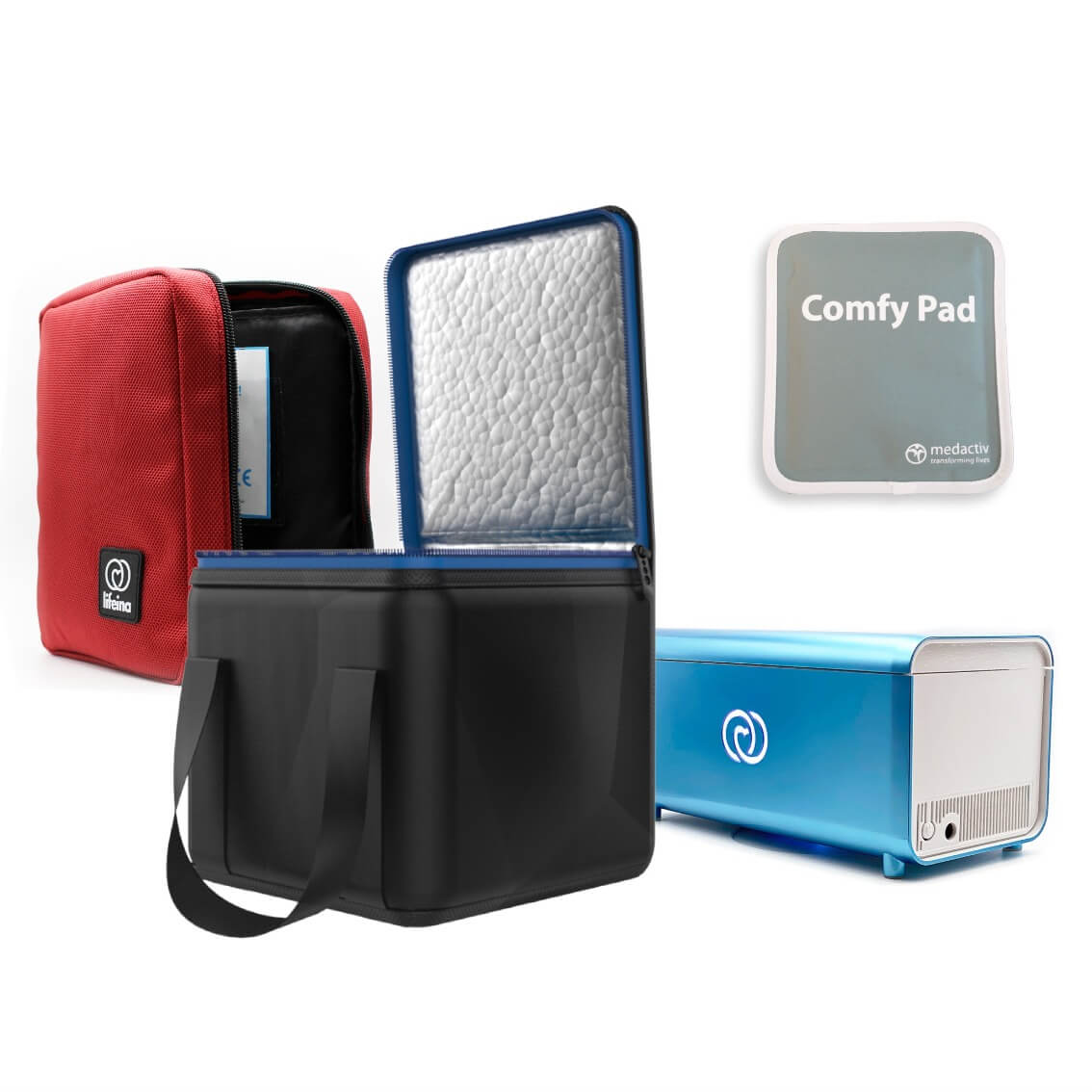

A Passport to Freedom:
The Lifeina Crohn’s and Colitis Travel Kit, a New Culture of Living with Chronic Disease

The Hidden Preparations of Invisible Illness
Travel is often celebrated as a metaphor for freedom. We imagine it as the open road, the crowded airport, the joy of leaving behind the daily grind. But for the more than 10 million people worldwide who live with inflammatory bowel diseases (IBD) like Crohn’s disease and ulcerative colitis, travel is a test of resilience. It begins not with a suitcase and passport, but with the hum of a refrigerator, the scheduling of injections, and the anxious calculation of how long medication can survive outside controlled conditions.
Into this landscape of uncertainty steps the Lifeina Crohn’s and Colitis Travel Kit, a bundle of devices and comforts designed to protect fragile medications while also easing the psychological weight of the journey. More than a product, it is emblematic of a broader cultural shift: the recognition that chronic illness is not just about treatment but about dignity, quality of life, and mobility.

Discover the Lifeina Crohns and Colitis Travel Kit
________________________________________________________________________
Crohn’s Disease: A History of Naming and Understanding
The disease that today bears the name “Crohn’s” was formally described in 1932 by Burrill Crohn, Leon Ginzburg, and Gordon Oppenheimer, three physicians at Mount Sinai Hospital in New York. Their landmark paper identified a distinct pattern of inflammation in the terminal ileum, distinguishing it from ulcerative colitis and other gastrointestinal disorders. The naming of Crohn as the lead author ensured the disease carried his surname, but the condition itself had existed long before. Historical records suggest cases of “ileitis” or “consumption of the bowels” as far back as the 19th century.
The mid-20th century brought steroids and surgery as the primary tools of management. Later decades introduced immunomodulators and, eventually, biologics—targeted therapies such as infliximab (Remicade), adalimumab (Humira), golimumab (Simponi), and ustekinumab (Stelara). These drugs transformed Crohn’s from a relentlessly debilitating condition into a manageable chronic illness. Patients who once faced repeated hospitalizations and surgery could now live lives punctuated by long remissions.
Yet every advance in therapy came with its own challenges. Biologics, miracles of molecular engineering, are delicate. They are proteins that must be kept within narrow temperature ranges—usually 2–8 °C—to remain effective. Unlike pills that slip easily into a pocket, biologics tether patients to refrigeration. A business trip, a family holiday, or even a weekend getaway became an exercise in logistics: where to store the medication, how to travel with it, what to do if flights are delayed or hotel fridges malfunction.
________________________________________________________________________
The Fragility of Medicine and the Burden of Travel
Consider the everyday scene of checking into a hotel. For most guests, the minibar is a convenience stocked with overpriced drinks. For a Crohn’s patient, it is a potential lifeline—but an unreliable one. Studies have shown that hotel fridges often fail to maintain consistent cooling, sometimes freezing their contents, sometimes drifting above safe ranges. Either extreme can destroy a biologic.
Patients learned to improvise. Some begged restaurants to store medication in their refrigerators. Others packed coolers with ice packs, constantly refreshing them during travel. Air travel added another layer of stress: security checkpoints, restrictions on liquids, and the suspicion that insulated bags might hide contraband. For many, the very idea of a holiday became intimidating. Some avoided travel altogether.
It is against this backdrop that the Lifeina Crohn’s and Colitis Travel Kit becomes more than a collection of objects. It represents a recognition of need, a cultural acknowledgment that patients should not have to choose between health and mobility.
________________________________________________________________________
Anatomy of a Kit
The kit is not a single device but an ecosystem of solutions designed to work together. Each element corresponds to a scenario in the geography of travel.
- LifeinaBox: Marketed as the world’s smallest portable fridge, it is delivered with a universal 110-240V adapter with 4 different plugs, as well as a 12V adaptor for the car’s cigarette lighter. For a hotel stay or a road trip, it provides the kind of reliability that a minibar never can. Its quiet hum is a reassurance: the medicine inside is safe.
- LifeinaBag12: A 12-hour isothermal travel bag. This is the airplane companion, lightweight and discreet, designed to pass unnoticed through security while keeping medication stable during flights and layovers.
- MediCube: Larger and more robust, it maintains 36 hours of cooling. Ideal for long journeys or unpredictable itineraries, it is the insurance policy against delays. Critics sometimes note its bulk, but for those who have endured the anxiety of a missed connection, its presence is comforting.
- Comfy Pad: A small but telling inclusion, this reusable pad eases the sting of injections. Its presence in the kit suggests an awareness that treatment is not only about biology but also about the lived sensory experience of patients.
The effect is comprehensive. Whether the patient is boarding a two-hour flight, embarking on a transatlantic journey, or checking into a rural inn, the kit provides a tailored solution.
________________________________________________________________________
The Importance of Cold Chain Integrity
The term “cold chain” refers to the uninterrupted refrigeration of a product from manufacturer to end user. For vaccines, insulin, and biologics, the cold chain is as vital as the medicine itself. Breaks in the chain are invisible—no change in appearance reveals that a biologic has denatured—but their consequences are profound. A compromised dose may fail to control disease, leading to flare-ups that require hospitalization or steroid therapy.
For Crohn’s patients, this is not an abstract concern. A single spoiled injection can mean weeks of pain, fatigue, and digestive turmoil. The Lifeina kit ensures that the cold chain extends beyond the pharmacy into the everyday lives of patients. It takes a global supply system and shrinks it into a portable form, carried in a backpack or car.
________________________________________________________________________
Customer Voices: Relief Made Tangible
Reviews from patients often read less like product evaluations and more like exhalations of relief.
Rebecca T(xxx) described using the kit during family holidays: “Perfect for Humira at the hotel and in the car, and the travel bags are outstanding for the plane.” For her, the kit transformed logistics into certainty.
Albert B(xxx) highlighted its adaptability: “I use Simponi injections, and this is perfect. The MediCube is a bit bulky, but it’s the only way I know my medication will last the whole trip.” His words echo the trade-off that patients often face: inconvenience versus security. For many, security wins.
Cecilia T(xxx) expressed gratitude not just for the devices but for the recognition embedded in their design: “Finally something really designed specifically for Crohn’s medication.” In her statement is a subtle but powerful cultural point: too often, medical devices are generic, forcing patients to adapt. Here, the adaptation goes the other way—the product bends to the needs of the patient.
Brian S(xxx)’s succinct declaration—“If you have Crohn’s you need this!”—strips away detail and speaks directly to urgency. It is less a review than a warning, a call to others not to repeat his own anxieties.
________________________________________________________________________
Famous Lives and the Public Face of Crohn’s
The cultural resonance of Crohn’s is shaped by the celebrities who live with it. Comedian Pete Davidson has used his platform to normalize the disease, joking about his symptoms while also revealing the exhaustion it brings. Former NFL quarterback David Garrard continued to play at the highest level while managing flares, embodying resilience. Actress Shannen Doherty, better known for her cancer advocacy, has also spoken about autoimmune conditions.
Their testimonies matter because they shift the perception of Crohn’s from private suffering to public awareness. They remind audiences that chronic illness intersects with careers, creativity, and identity. A travel kit like Lifeina’s, in this context, is not just a medical tool but a cultural artifact: a small piece of technology that enables lives lived in the spotlight, on tour, or on the road.
________________________________________________________________________
The Price of Peace of Mind
At €400, the Lifeina Crohn’s and Colitis Travel Kit is not inexpensive. But framing it purely in economic terms misses its symbolic value. The cost of spoiled medication can run into hundreds of euros per injector pen, not to mention the medical costs of flare-ups triggered by ineffective injections. The psychological cost—the anxiety of travel, the avoidance of opportunities—is harder to quantify but no less real.
For many patients, the kit represents an investment in peace of mind. It is a passport not only across borders but across the boundary between illness and freedom.
________________________________________________________________________
Beyond Devices: The Rise of Patient-Centered Design
The kit also belongs to a broader movement in healthcare technology: patient-centered design. Historically, medical devices were created for hospitals, shaped by engineers and regulators, often indifferent to the daily realities of patients. In the last two decades, however, a new wave of design has emerged—portable insulin pumps, wearable heart monitors, smartphone-linked blood pressure cuffs—that acknowledges the patient as the primary user.
Lifeina’s kit is part of this wave. Its combination of technical reliability with empathetic touches—like the comfort pad and book—shows an awareness that health is not just about efficacy but also about experience. It treats patients not as passive recipients of care but as active travelers negotiating the world.
________________________________________________________________________
Looking Forward: The Future of Traveling with Chronic Illness
As global travel resumes after the disruption of the COVID-19 pandemic, patients with chronic diseases demand solutions that let them move freely. The rise of digital health, smart sensors, and connected refrigeration promises even greater control. Future iterations of devices may include temperature logging, smartphone alerts, and integration with medical records. The goal is not only to protect the cold chain but to document it, providing evidence that every dose remained safe.
The Lifeina Crohn’s and Colitis Travel Kit is both a product of its time and a precursor of things to come. It stands at the intersection of biotechnology, design, and patient advocacy, signaling a future where no one should have to choose between treatment and adventure.
________________________________________________________________________
A Culture of Mobility
The story of Crohn’s disease is a story of struggle, science, and resilience. From its description in the 1930s to the advent of biologics in the 1990s, it has always been about regaining control over a body that resists predictability. The Lifeina Crohn’s and Colitis Travel Kit extends that story into the realm of travel. It is a modest but profound innovation that says: you can pack your bags, board your plane, and step into the world without fear.
It is, in the end, a passport to freedom—not stamped by border agents, but by the quiet hum of a fridge, the steady cold of an insulated bag, and the confidence of a traveler who knows that their health will not betray them on the journey.
Find out more here on the Lifeina Crohns Travel Kit
Wherever life takes you — MedActiv goes with you.
ABOUT MEDACTIV
MedActiv is a global leader in the development of transport and storage solutions for sensitive medication. Our products are designed to give users the freedom to travel knowing that their medication is kept at exactly the right temperature. As the chosen partner of major pharmaceutical companies worldwide, MedActiv is constantly pushing back the boundaries of this industry.
MedActiv North America www.medactiv.ca MedActiv Europe www.medactiv.com MedActiv South America www.medactiv.cl MedActiv Australia www.medactiv.com.au LifeIna Europe www.lifeina.com
FOLLOW US
- Youtube

Unauthorised duplication or publication of any materials from this Site is expressly prohibited.